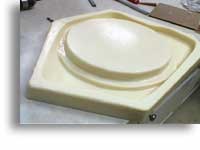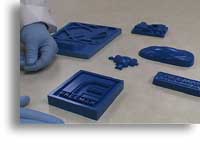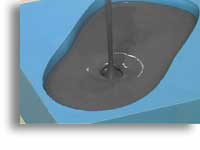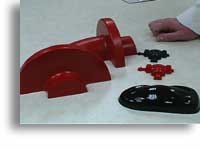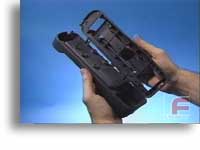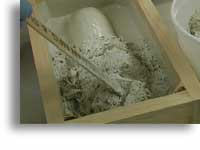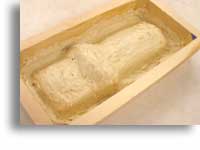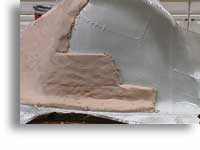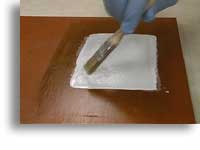|
Liquid Tooling Materials Selection Guide (Part 2 of 2: Choosing a Liquid Tooling Material) After you choose which method is best, you need to decide which material(s) to use. Choosing your material largely depends on your answers to the following questions:
Please keep in mind that the information below should be considered as guidelines and not rules. The best material for your application will vary depending on the unique characteristics of your project. This is why Freeman offers free technical support to all of our customers. Flexible Mold Making Materials Ideal for negative molds (mass casting), flexible parts and gaskets, plaster casting, and prototypes.
Filled Mass Casting Materials These urethane or epoxy materials are filled with glass, aluminum, iron, or other materials, which give them unique properties and in many cases, lower the cost over unfilled materials.
Unfilled Mass Casting Materials These urethanes are available in a wide variety of durometers, from very flexible to very rigid. Although higher in cost than most filled urethanes, these materials are more versatile and more durable in thinner sections.
Laminating Materials Used primarily in larger tooling applications where weight and overall material requirements becomes an issue, these materials offer a variety of alternatives for creating inexpensive parts and tooling.
|
||||||||||||||||||||||||||||||||||||||||||||||||||||||||||||||||||||||||||||||||||||||||||||||||||||||||||||||||||||


